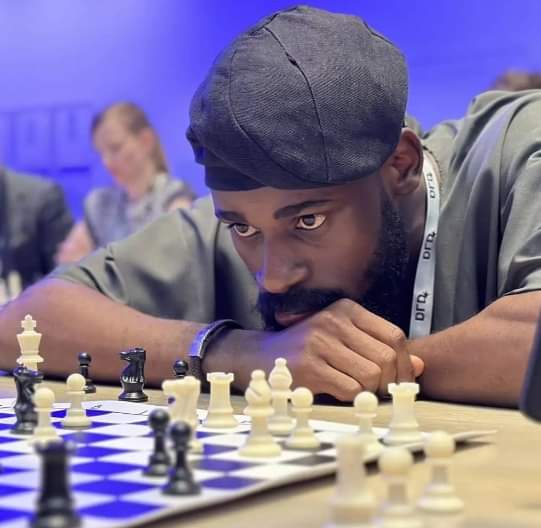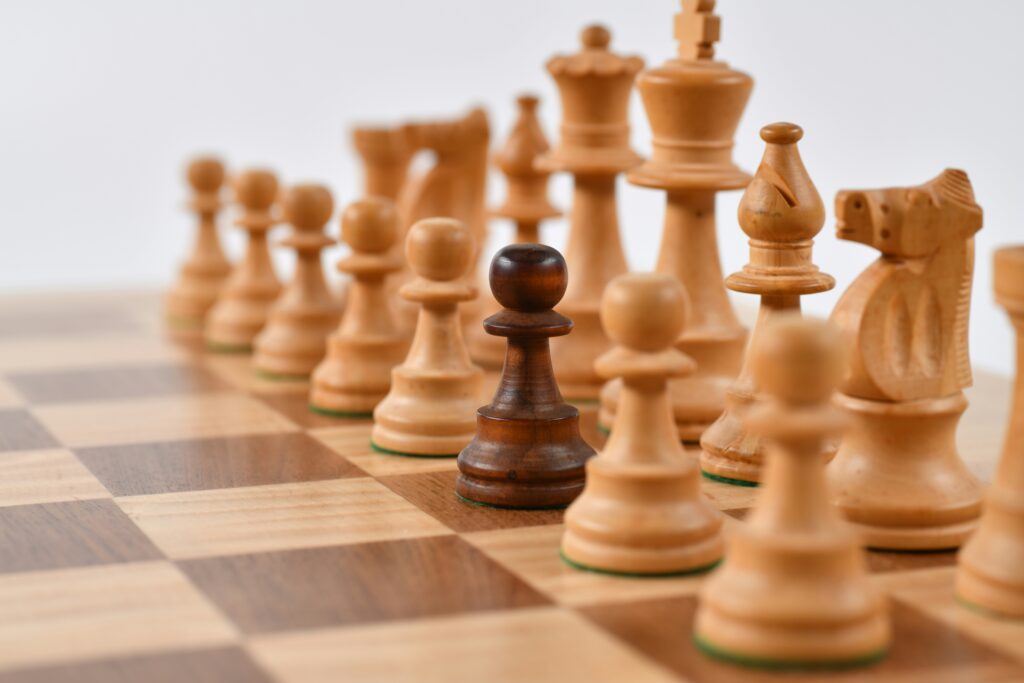CHESS
HISTORY OF THE SPORT
The history of chess at Obafemi Awolowo University (OAU) is a story of intellectual engagement and strategic prowess, reflecting the university’s emphasis on both academic and extracurricular development. Chess, known for its mental discipline and strategic depth, has been a popular game at OAU, attracting a community of students who appreciate the challenge it presents.
Early Beginnings:
Chess was likely introduced to OAU in the 1960s or 1970s, around the time the university itself was founded. As an intellectual sport, chess quickly found a home in OAU’s academic environment, appealing to students who were interested in strategy, logic, and problem-solving. Unlike many physical sports, chess provided an alternative platform for students to compete and demonstrate their mental acuity.
Chess Clubs and Societies:
Formation of Chess Clubs: The development of chess at OAU began with the formation of chess clubs. These clubs were usually student-driven, created by chess enthusiasts who wanted to promote the game and provide a space for regular play. The chess clubs served as a hub for organizing matches, tournaments, and learning sessions, attracting both seasoned players and beginners.
University Support: Over time, OAU’s sports council and other student organizations recognized the value of chess as a sport, and it became more formally integrated into the university’s extracurricular activities. Chess clubs often collaborated with the university’s Sports Council or the Student Union to organize events and competitions.
Academic Ties: Given the intellectual nature of chess, the game often attracted students from faculties such as Sciences, Law, and Engineering, though participation was open to students from all disciplines. Chess allowed these students to engage in a different form of competition, one that required mental sharpness, patience, and long-term strategic thinking.

Competitions and Tournaments:
Interfaculty Chess Competitions: As chess grew in popularity, it became a regular feature in the university’s interfaculty competitions. These tournaments provided an opportunity for faculties to compete against one another, fostering a spirit of intellectual rivalry. Chess, though a quieter sport compared to others, was highly competitive, with faculties fielding their best players.
Intra-University Tournaments: In addition to interfaculty competitions, intra-university chess tournaments became common. These were often organized by the chess club or as part of larger university-wide sports festivals. Students from different faculties, regardless of their level of expertise, could participate, making chess accessible to a wide range of players.
Nigerian University Games Association (NUGA): Chess is also featured in the Nigerian University Games Association (NUGA), a national competition in which OAU regularly participates. The university’s chess team has represented OAU in several NUGA tournaments, often competing against other universities from across Nigeria. OAU’s chess team has earned a reputation for being highly competitive, consistently performing well in these national competitions.
International Tournaments: Some of OAU’s top chess players have gone on to compete in international competitions, representing the university in prestigious events. The experience gained from interfaculty and university-wide competitions has helped develop talented chess players capable of competing at higher levels.
Chess as a Social and Intellectual Activity:
Mental Development: Chess is widely recognized as a game that promotes critical thinking, problem-solving, and intellectual discipline. At OAU, chess has long been valued for these attributes, and students who participate in the game often view it as a form of mental exercise that complements their academic work.
Chess as a Social Activity: Beyond its intellectual benefits, chess has also served as a social activity at OAU. Chess clubs provide a space for students to gather, interact, and form friendships. The relaxed nature of the game allows for casual conversation, networking, and bonding over shared interests in strategy and competition.
Inclusivity: Chess at OAU has been an inclusive sport, attracting students from all academic levels and faculties. The game’s minimal equipment requirements (a board and pieces) make it accessible to almost anyone, and its universal appeal ensures that students from diverse backgrounds come together to play.
Chess Coaching and Development:
Training and Learning: Over time, chess clubs at OAU have organized training sessions for both new players and experienced ones. Skilled players often act as mentors, teaching less experienced students the finer points of chess strategy, opening theory, and tactics.
Competitions as Learning Grounds: The competitive nature of chess at OAU has also served as a key learning experience for students. Through participation in tournaments and interfaculty competitions, players hone their skills, improve their game, and learn to think under pressure. The competitive environment fosters a continual cycle of learning and improvement.

Chess Culture at OAU:
Strategic Importance: Chess at OAU is viewed as more than just a game; it is a sport of strategy and intellect that reflects the university’s culture of academic rigor and mental discipline. Students who participate in chess often take great pride in their strategic abilities, and the game’s emphasis on careful planning, foresight, and analysis makes it a natural fit for OAU’s academic environment.
Campus Events: Chess is also a feature in various campus events, including Freshers’ Week and other university-wide celebrations. These events often include casual chess matches or speed chess tournaments, attracting both serious competitors and those who play for fun.
Notable Achievements and Legacy:
Recognition in NUGA: OAU’s chess team has earned recognition in the Nigerian University Games (NUGA) for their outstanding performances. The team has consistently ranked among the top competitors, and individual players from OAU have been acknowledged for their strategic excellence and achievements.
Chess Alumni: Several former students who were active in the OAU chess community have gone on to participate in national and international chess tournaments. These alumni often maintain ties with the university, sometimes returning to mentor current players or sponsor chess events.
Challenges and Opportunities:
Challenges: Like many intellectual sports, chess at OAU faces challenges such as limited funding and resources. While chess doesn’t require expensive equipment, organizing large tournaments, providing formal coaching, and traveling to external competitions can be difficult without adequate support.
Opportunities for Growth: There is ongoing interest in developing chess further at OAU. With more institutional backing, the university could expand its chess programs, introduce formal coaching, and increase participation in national and international tournaments.
Conclusion:
The history of chess at Obafemi Awolowo University is one of steady growth and intellectual engagement. Over the years, the sport has become a key part of the university’s extracurricular offerings, providing students with opportunities for competition, social interaction, and mental development. Chess at OAU remains a vital and respected part of the university’s sports culture, and its popularity is likely to continue as more students embrace the challenge and strategy that the game offers.
ONGOING EVENTS
CHESS COUNTDOWN
September 24, 2020
Mestalla Stedium
HALL OF FAMES
Check out wonderful achievements of the University Sportsmen





